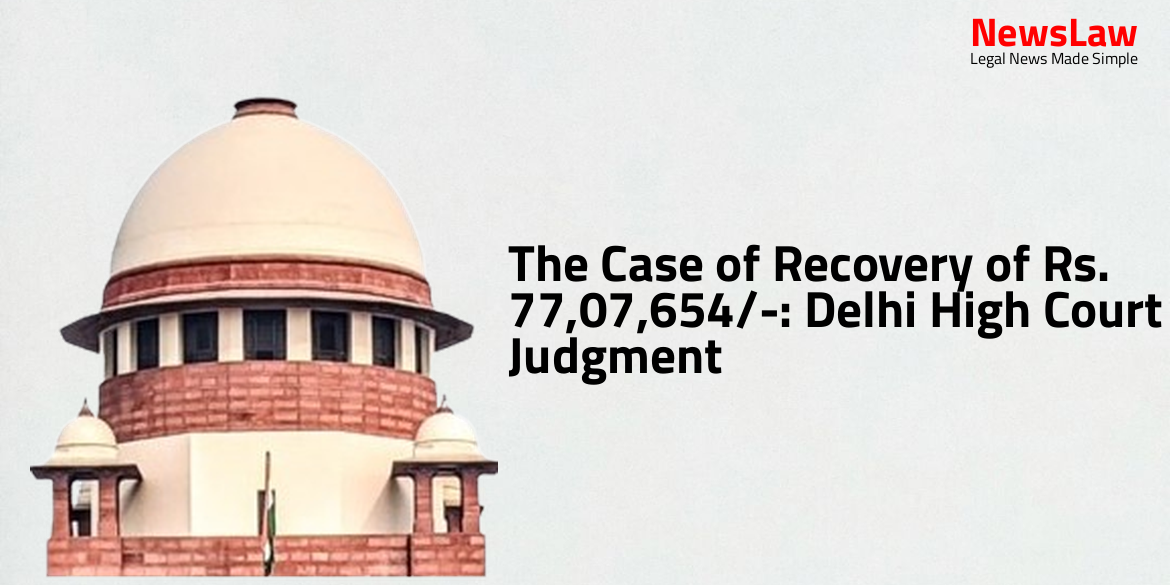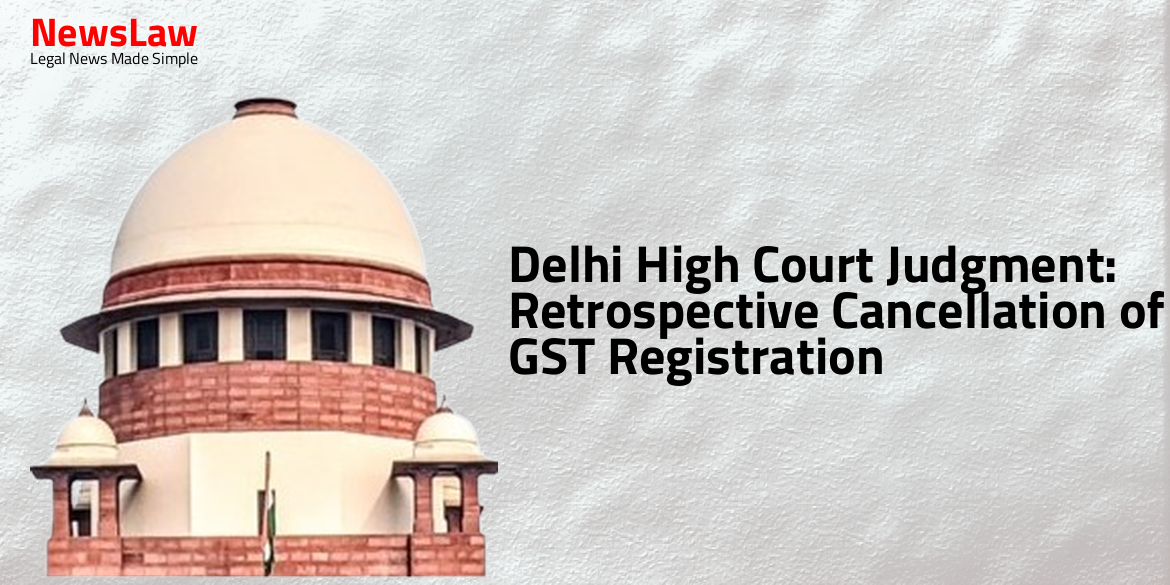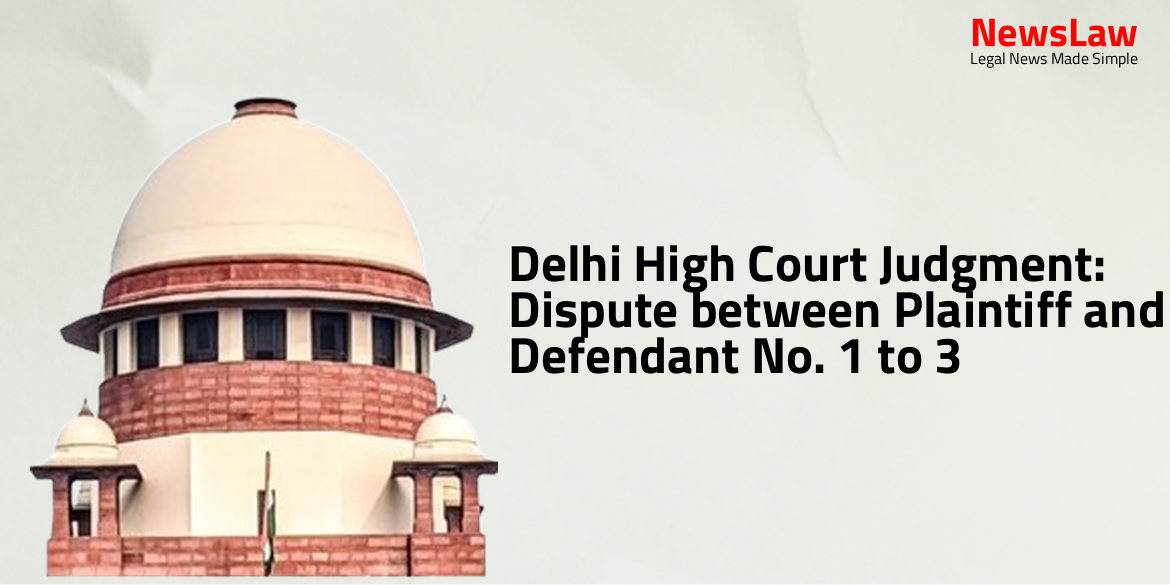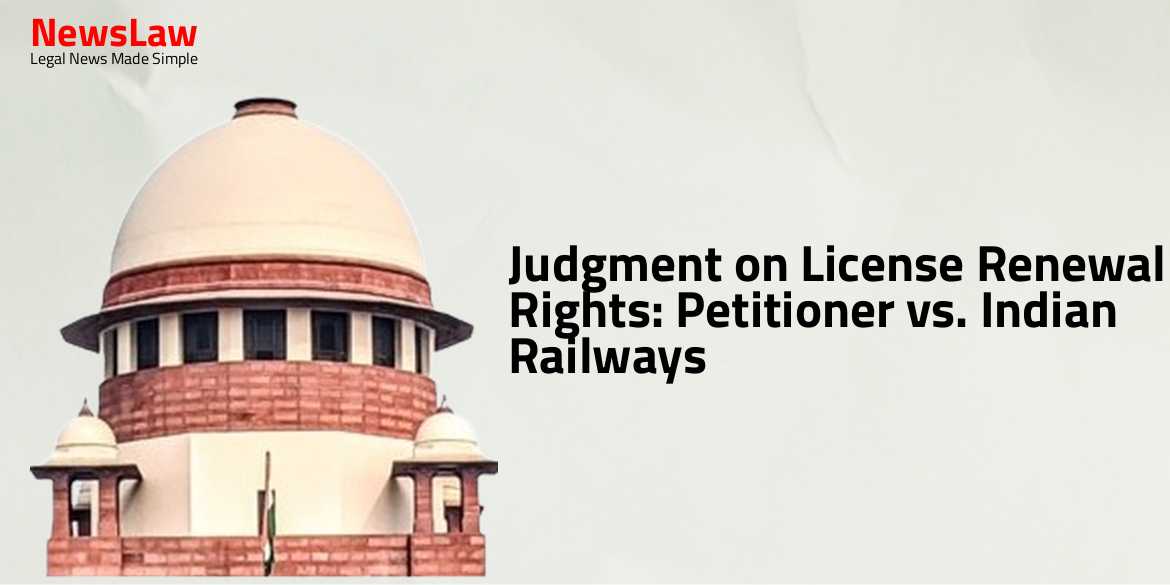In a recent judgment by the Delhi High Court regarding the recovery of Rs. 77,07,654/-, the Court addressed the crucial matter of evidence and fair assessment in a legal process. The case, brought by Respondent no.1 and 2, requires a comprehensive understanding and thorough examination of all relevant information. The Court’s decision aimed to ensure a just outcome for the parties involved. Let’s delve into the details of this significant legal ruling.
Arguments
- The present petition has been filed invoking the supervisory jurisdiction of the Court under Article 227 of the Constitution of India.
- The learned counsel for the petitioner argued that the Trial Court did not consider the written submissions filed by the petitioner to counter false claims in the suit filed by the respondents.
- The petitioner’s submissions were disputed by the respondents’ counsel, who argued that the Trial Court appropriately decided the matter, and the petitioner would have the opportunity to present evidence during the proceedings if necessary.
- The petitioner’s counsel cited specific judgments to support their arguments.
- The case is currently in the phase of concluding evidence from the respondents, and the petitioner has been filing allegedly frivolous applications seemingly aimed at prolonging the proceedings.
Analysis
- The court referred to the aforesaid suits and held that evidence in one suit shall be read as evidence in the connected suit.
- This decision was crucial as it allowed for a more cohesive understanding of the cases and facilitated a more efficient legal process.
- By considering evidence from one suit in another, the court aimed to ensure a fair and comprehensive assessment of the matter at hand.
- The ruling exemplified the court’s commitment to upholding the principles of justice and ensuring that all relevant information was thoroughly examined.
- Any party in a suit can request the disclosure of relevant documents from the opposite side at any time during the proceeding.
- The Court has the authority to direct any party to produce documents in their possession or power, upon oath, that relate to the matter in question in the suit.
- The Court notes that certain documents are public records and can be summoned during evidence presentation.
- Partial cross-examination of plaintiff no.1 has already taken place.
- Any deficiencies in the documents filed by the plaintiffs may have consequences on their case.
- Plaintiff no.1 is still under cross-examination, and the defendant’s counsel can question them further.
- The petitioner is requesting specific documents related to income tax returns, loan applications, and balance sheets for verification.
- The Trial Court is hesitant to allow the request for additional documents, emphasizing the need for the plaintiffs to prove their case based on the existing evidence.
- The suit has been filed for recovery of a certain amount, with one key issue that the plaintiffs need to prove.
- The Court concludes there is no need for additional directions as requested in the application.
- The Trial Court has correctly determined that the Original Name is still undergoing cross-examination.
- The Original Name will have ample opportunity to pose relevant questions during cross-examination.
Decision
- Respondent no.1 and 2 brought a suit for recovery of Rs. 77,07,654/-.
- The burden of proof lies on Respondent no.1 and 2.
- They must provide oral and documentary evidence to support their case.
- If there are deficiencies in the documents, an adverse inference may be drawn against them.
- The petition along with pending application is dismissed.
Case Title: SURINDER SOOD Vs. RAJINDER SINGH & ORS. (2024:DHC:4324)
Case Number: CM(M)-1974/2023



